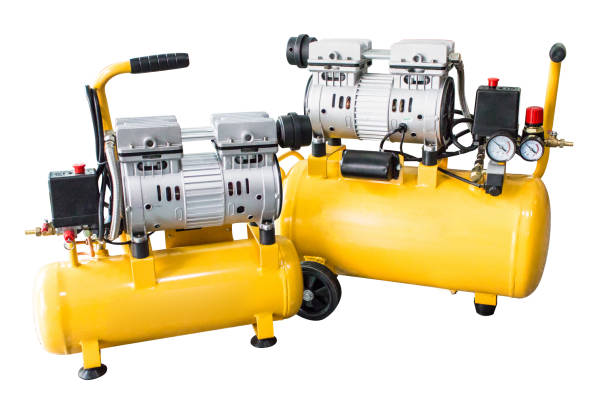Using a portable air compressor can help you take your projects up a notch. Because they’re compact, these compressors can be carried and stored almost anywhere.
Also, if you’re only using small machines for your project, portable air compressors may be more ideal and practical than full-sized options because they do the job and are more energy efficient too.
Whether it’s for inflating tires or airbrushing, an air compressor can be the perfect tool to make your job easier. To make sure you get the most out of it, here are five tips on how to use it like a pro:
- Check for spills and drips. Make sure that the compressor has no leaks. Otherwise, this can lead to a loss of pressure and performance. So inspect it for any signs of wear or tear before using it.
- Connect securely. Always attach the air hose correctly and securely to the compressor as well as to your tool. This is important in order to make sure that you have an uninterrupted flow of air.
- Maintain pressure. Pay attention to the pressure readings on the gauge so you can turn it off when the desired levels are reached. Otherwise, overpressurising can damage the pipe and the tool.
- Clean up after use. After using your air compressor, make sure to give it a good clean-up. This will help maintain its performance for future projects.
- Store safely. Make sure to keep the compressor in a cool, dry place. Also, don’t leave the hose attached to it, as this can cause corrosion.
By following these tips, you’ll be able to use your portable air compressor like you’ve had it for a long time already and make the most of its lifespan!
Important Things to Remember
- Make sure you have the right compressor for your intended application. Find out more about the job requirements and check if the compressor meets them. Don’t hesitate to ask suppliers for further information about their product catalogue.
- Check the tank size and power source. Compressors come in different tank sizes. The greater the supply of air needed, the larger the tank size should be. If you plan to use the compressor outdoors, a gasoline-powered type may be more suitable. But if you’ll be using it indoors, electric choices may be more suitable.
- Always inspect your compressor for leaks and make sure the air hose is connected securely when in use.
- Don’t overpressurize the equipment, and keep an eye on the pressure readings to know when to turn it off.
- Clean up after use and store your compressor in a cool, dry place with the air hose detached.
- See if the compressor is certified for use by industry authorities. In Singapore, it’s essential to verify that the compressor is Ministry of Manpower-certified for its intended use. It would be great if the piece of equipment had received certification for use in multiple environments. That is one proof it’s flexible and safe for use.
For a stress-free procurement experience, be sure to partner with a trusted local supplier of portable air compressors for your machinery needs.



